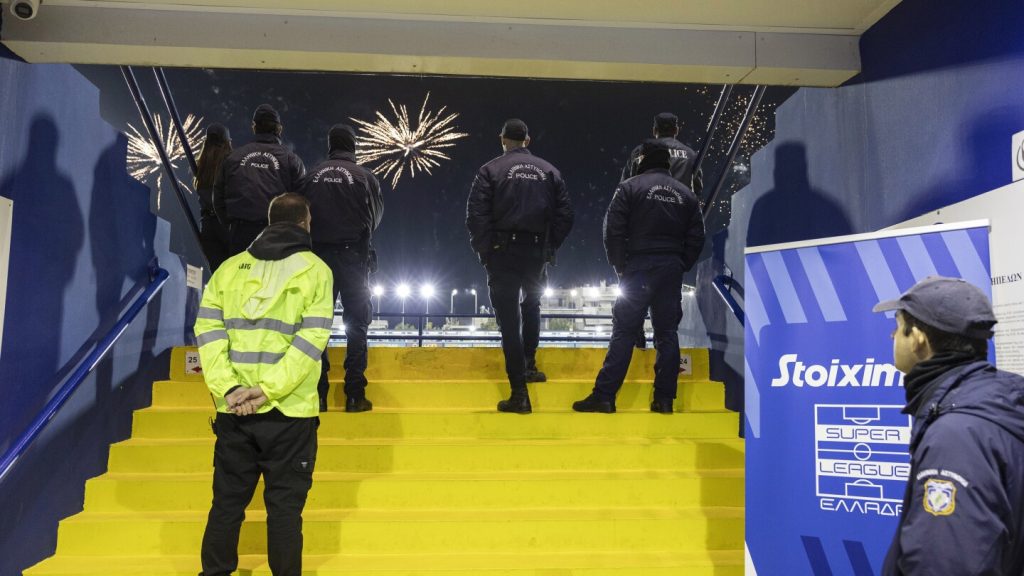Greek authorities have taken a significant step in addressing the long-standing issue of violence in league soccer matches by implementing a ban on paper tickets for all games. Fans will now be required to use their cellphones to display a government-issued QR code for identification and enforcement of attendance bans. This move comes after stadiums were closed to spectators for two months to allow for security measures to be revamped following the tragic death of a police officer during a fan riot in Athens in December.
Starting Tuesday, fans will be required to purchase tickets online and verify their purchase using a state-run app that is typically used for tax payments and online government services. The transition away from paper tickets is expected to last for one month, with exceptions being made for minors and seniors. The new system will be expanded to other sporting events after the summer, providing a more streamlined process for fans to access stadiums and reducing the need for a heavy police presence at entrances.
Digital governance minister Dimitris Papastergiou noted that one of the main goals of this new system is to reduce the burden on Greek police, who have historically been required to provide a large number of officers at stadiums to ensure security. With the implementation of electronic ticketing, police presence at stadium entrances will no longer be necessary, allowing for a more efficient and effective approach to handling crowd control. Already, 10,000 season-ticket holders out of 80,000 have made the switch to the new electronic system, signaling a positive response to the change.
The ban on paper tickets is part of a broader effort to curb violence in Greek soccer matches, which have been plagued by incidents for many years. By requiring fans to use their cellphones and display QR codes for entry, authorities hope to better track and identify individuals who may be engaging in disruptive or violent behavior. This move comes in the wake of heightened concerns about safety and security at sporting events, particularly in light of the tragic incident that occurred in December, which led to the death of a police officer.
The implementation of this new ticketing system represents a significant shift in how fans access and attend soccer matches in Greece. By leveraging technology and digital solutions, authorities are working to modernize the process and enhance security measures at stadiums. This move is part of a larger initiative to create a safer and more enjoyable environment for fans, players, and staff alike, ultimately aiming to improve the overall experience of attending live sporting events in the country. The success of this new approach could have far-reaching implications for the future of sports security and crowd management in Greece.


